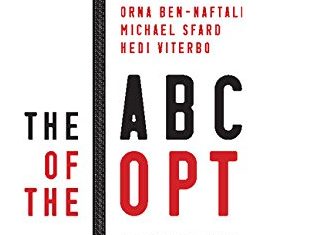Israel’s occupation or “control” (as the book prefers to call it) of Palestinian Territory that began with six days in June 1967, presents a depressing and tragic political and moral conundrum. For the international lawyer, it is also a legal laboratory of global relevance. “The Israeli occupation of Palestine embodies a fateful and troubling paradox regarding international law that we must acknowledge and think our way through”, writes Michael Lynk, the United Nations Special Rapporteur for the situation of human rights in the Palestinian Territory occupied since 1967, in his contribution to this symposium. A paradox, because the legal texts produced around it have on the one hand contributed to the progressive development of international law and have shaped key principles ranging from self-determination to the non-recognition of unlawful territorial acquisitions, but have on the other hand undermined international law because the actors involved in the management of the conflict have “consistently marginalized the promise and power of the rule of law as a political and diplomatic touchstone”, writes Lynk.
On Verfassungsblog and Völkerrechtsblog, we open the symposium with a contribution by Michael Lynk, Professor of Law at Western University, London, Ontario, and the United Nations Special Rapporteur for the situation of human rights in the Palestinian Territory occupied since 1967. Lynk deplores a marginalization of “the promise and power of the rule of law as a political and diplomatic touchstone when constructing the negotiation principles for the Oslo peace process” and strongly encourages a courageous re-engagement with international law. “This book reminds us that legal and political exceptionalism is an anathema to a secure and cooperative global society”, he stresses.
Yael Berda, Assistant Professor in the Department of Sociology and Anthropology at the Hebrew University of Jerusalem, argues in her contribution that “the format of the lexicon revives the colonial and imperial phantoms that have created international law“ and demonstrates how the use of the lexicon cuts through „the colonial political grammar of the occupation“, taking a closer look on two entries, the ones on “nomos” and on “military courts”.
Yuval Shany, Hersch Lauterpacht Chair in Public International Law at the Hebrew University in Jerusalem, observes that “[t]he book seems to downplay the fact that Israeli politicians, lawyers and judges have not adopted a uniform approach towards the laws of belligerent occupation. To the contrary, the laws of belligerent occupation remain a battleground for pursuing competing legal and political conceptions.”
Nadija Samour, a practising international criminal lawyer based in Berlin, finds in the volume “straight-forward analyses of Israeli policies in Palestine“. Yet, she critically states that “the most urgent task remains unaddressed: to provide an adequate legal framework that moves beyond international humanitarian law – and perhaps one that focuses on ending the occupation“.
A rejoinder by the authors, Orna Ben-Naftali, Michael Sfard, and Hedi Viterbo, shall conclude the symposium.
